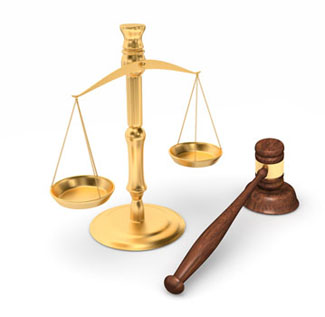
The Federal Government Throws Another Wrench Into The Engine Driving Camp Lejeune Justice Act Payouts
Suing the federal government just got much more difficult as proof of causation is now required
Wednesday, February 21, 2024 - Lawyers for plaintiffs will now be expected to work harder and for less money. Law 360.com is reporting that the federal government has placed yet another obstacle in the way of plaintiffs with cancer or neurological disease from receiving lump-sum monetary compensation under the Camp Lejeune Justice Act. If one's Camp Lejeune Justice Act claim is denied or ignored for six months, US Marines, civilian employees, and others who have spent more than 30 days at Camp Lejeune may file a lawsuit in the Eastern District of North Carolina. As of the latest ruling by the court, plaintiffs now may not automatically claim that their disease, even if it is one of the ones presumed to have been caused by drinking contaminated Camp Lejeune water, was caused by their time on the base. Plaintiffs must prove a cause-and-effect relationship between drinking the water there and developing the disease in question. Proving causation should be straightforward as the federal government and a handful of scientific studies presumes cause and effect. Each plaintiff should be prepared to show that there was not another source of causing the disease such as where they lived, worked, or their lifestyle. Putting on a more detailed case further shows the need for the guidance of Camp Lejeune water attorneys who will work free of charge unless they collect. Another drawback to opting for a Camp Lejeune water trial is the ruling that Camp Lejeune water plaintiffs may not seek punitive damages. The greater need for attorney assistance comes at a time when attorney fees for Camp Lejeune water settlements have been limited to 20% of an administrative award or 25% of any court award. Plaintiffs also have to waive their rights to a jury trial and accept a bench verdict. Several bellwether trials are scheduled to start this year which will demonstrate the level of proof a plaintiff will be required to show. Having to show specific causation for each plaintiff may also prevent plaintiff attorneys from grouping plaintiffs by disease and allow multiple plaintiffs per trial. Having multiple plaintiffs per trial is thought to be the only way to process the thousands of lawsuits that have been filed and those expected to be filed since the results of the latest CDC study broadening the list of diseases that could be presumed to have been caused at Camp Lejeune were published last month.
Lawyers representing plaintiffs affected by cancer or neurological diseases face heightened challenges and reduced compensation in light of recent developments outlined by Law360.com. Under the Camp Lejeune Justice Act, obstacles are added for those seeking lump-sum compensation, with administrative claim denials or delays prompting potential lawsuits in the Eastern District of North Carolina. However, recent court rulings demand plaintiffs prove a direct correlation between their illnesses and exposure to Camp Lejeune's contaminated water, complicating proceedings. Despite scientific support for causation, plaintiffs must also demonstrate the absence of alternative disease sources. This underscores the necessity of adept attorneys specializing in Camp Lejeune water cases, often working on contingency fees. Moreover, constraints on attorney fees and the exclusion of punitive damages further burden plaintiffs' legal recourse. The forthcoming bellwether trials will establish precedents for evidentiary standards, potentially influencing plaintiffs' grouping and trial efficiency strategies.

 OnderLaw, LLC and The Overholt Law Firm, PC -
OnderLaw, LLC and The Overholt Law Firm, PC -